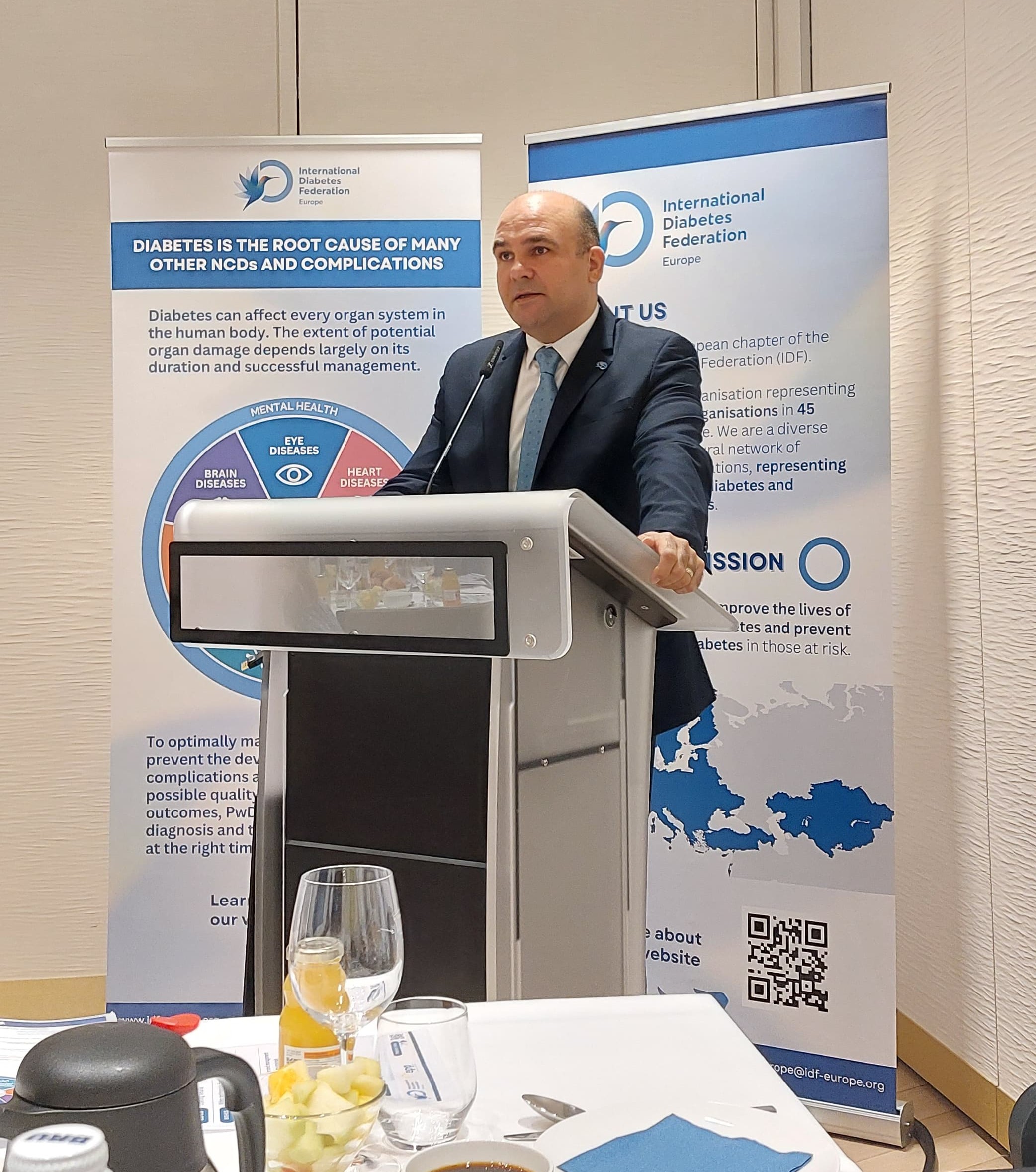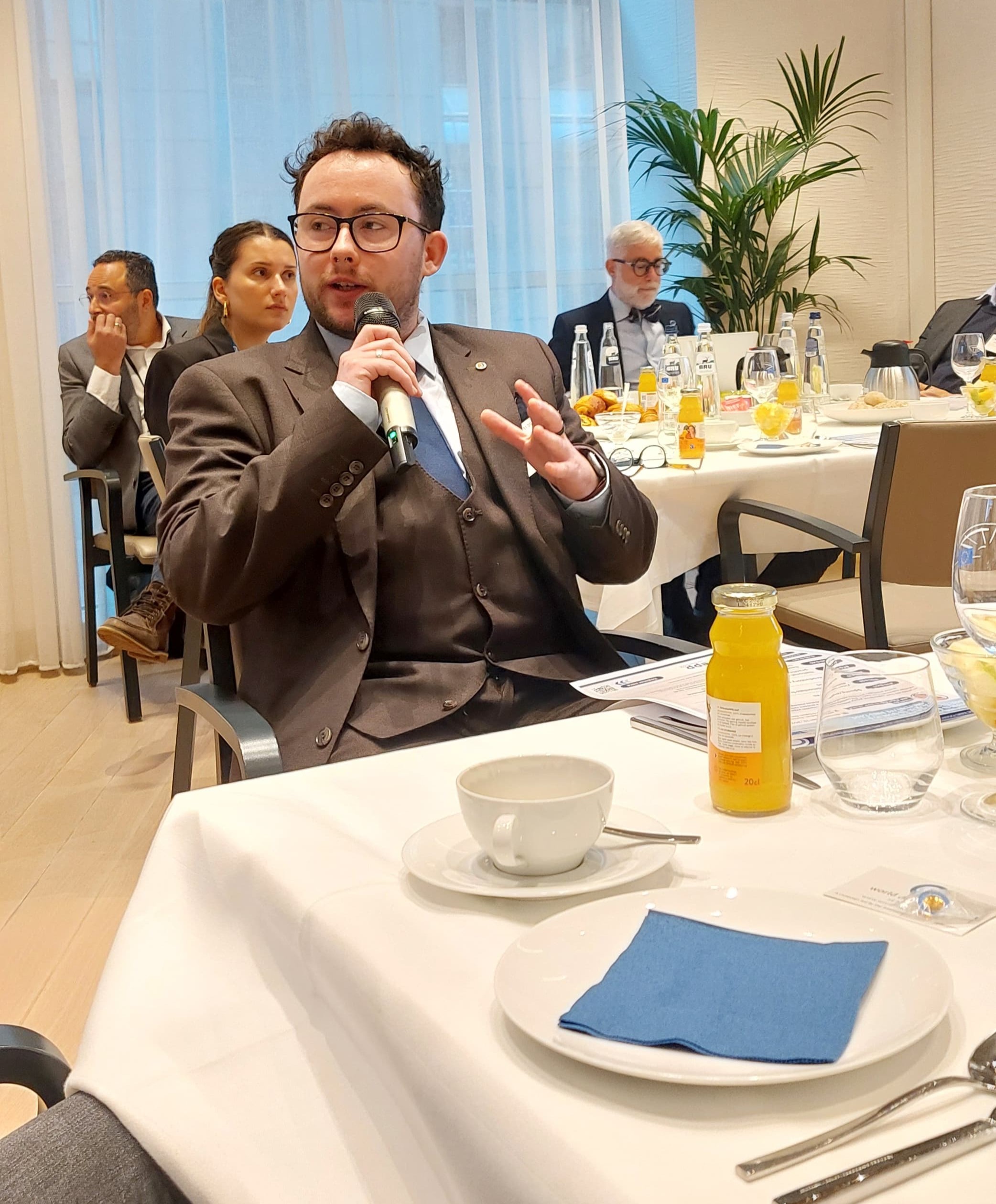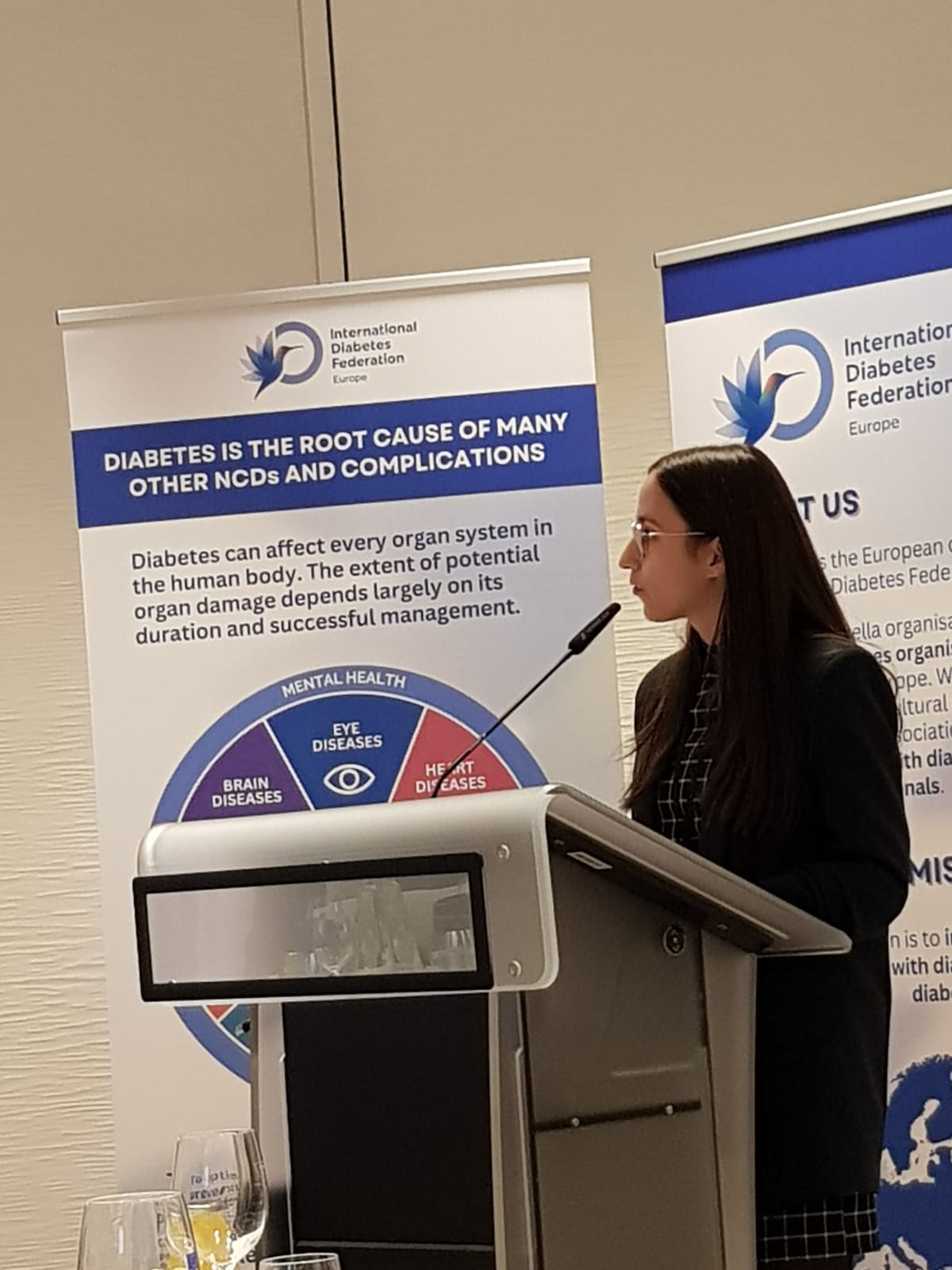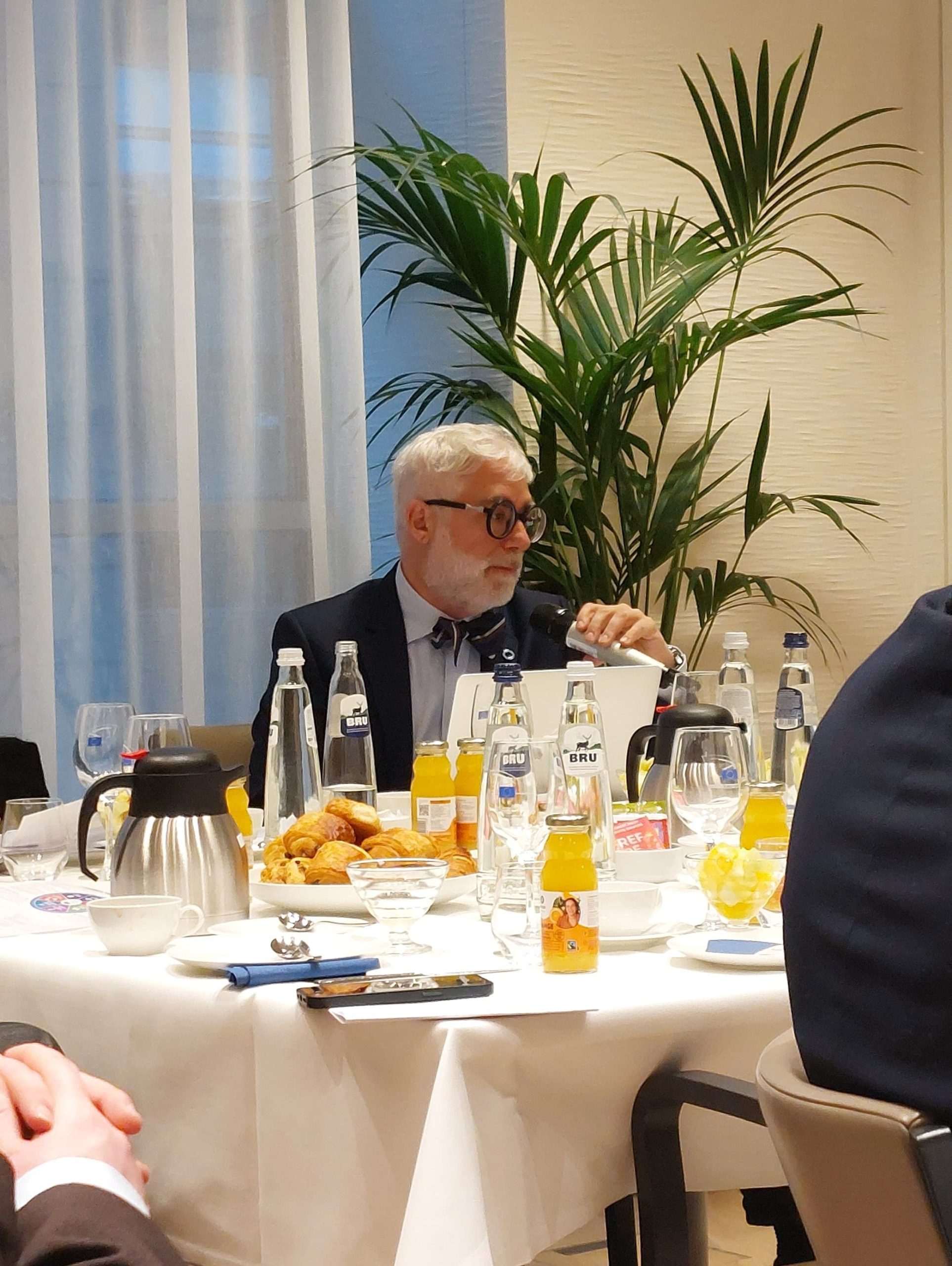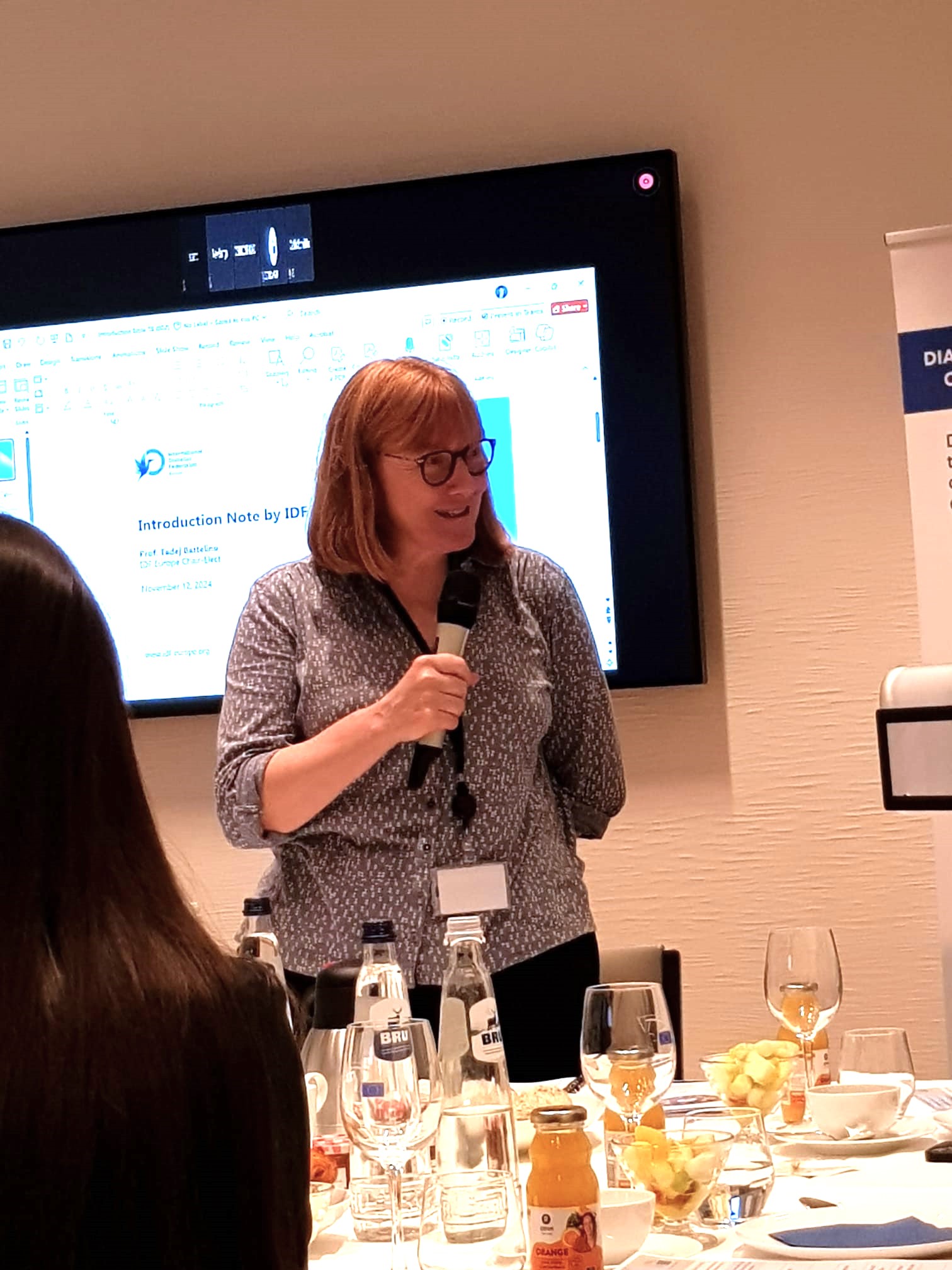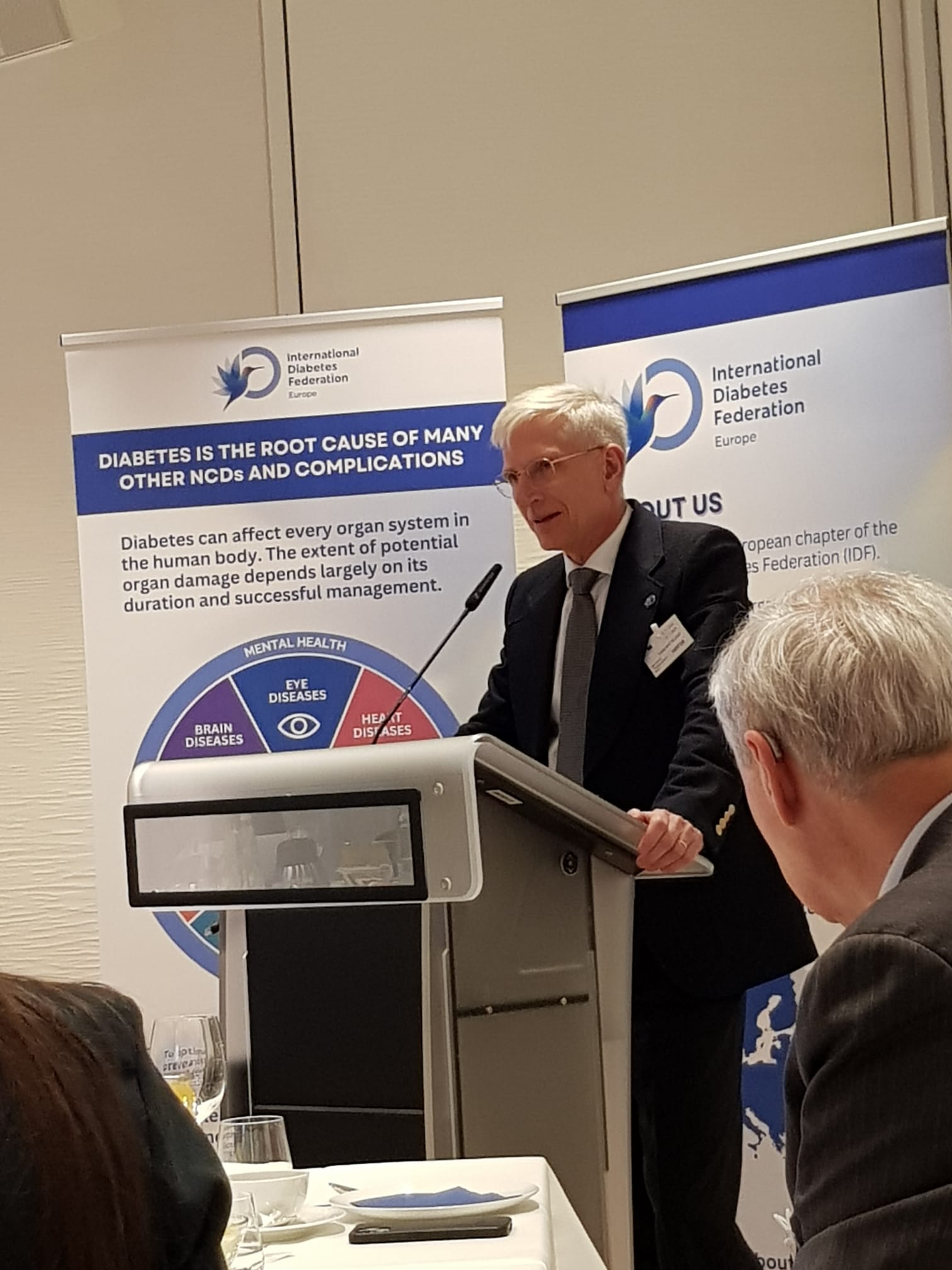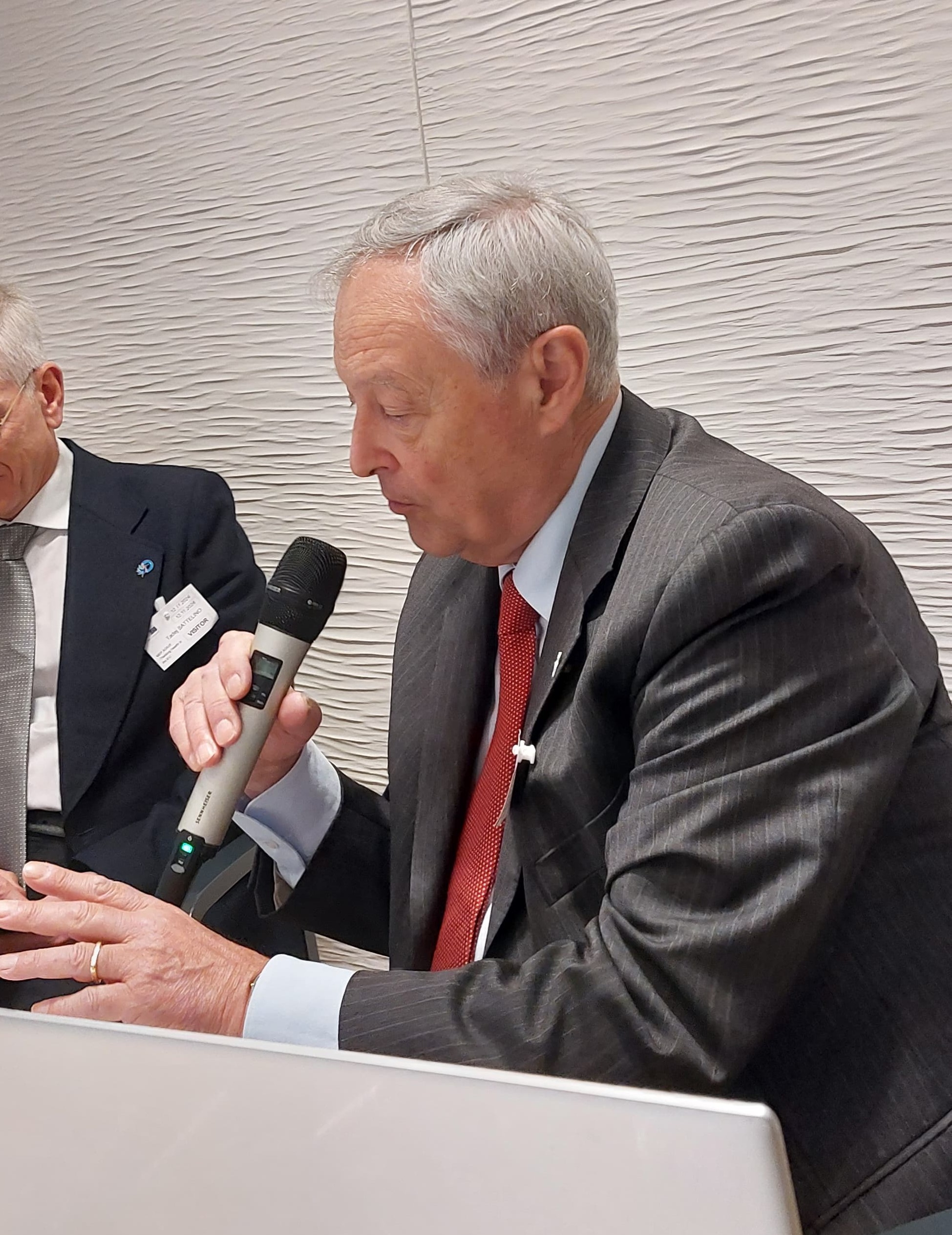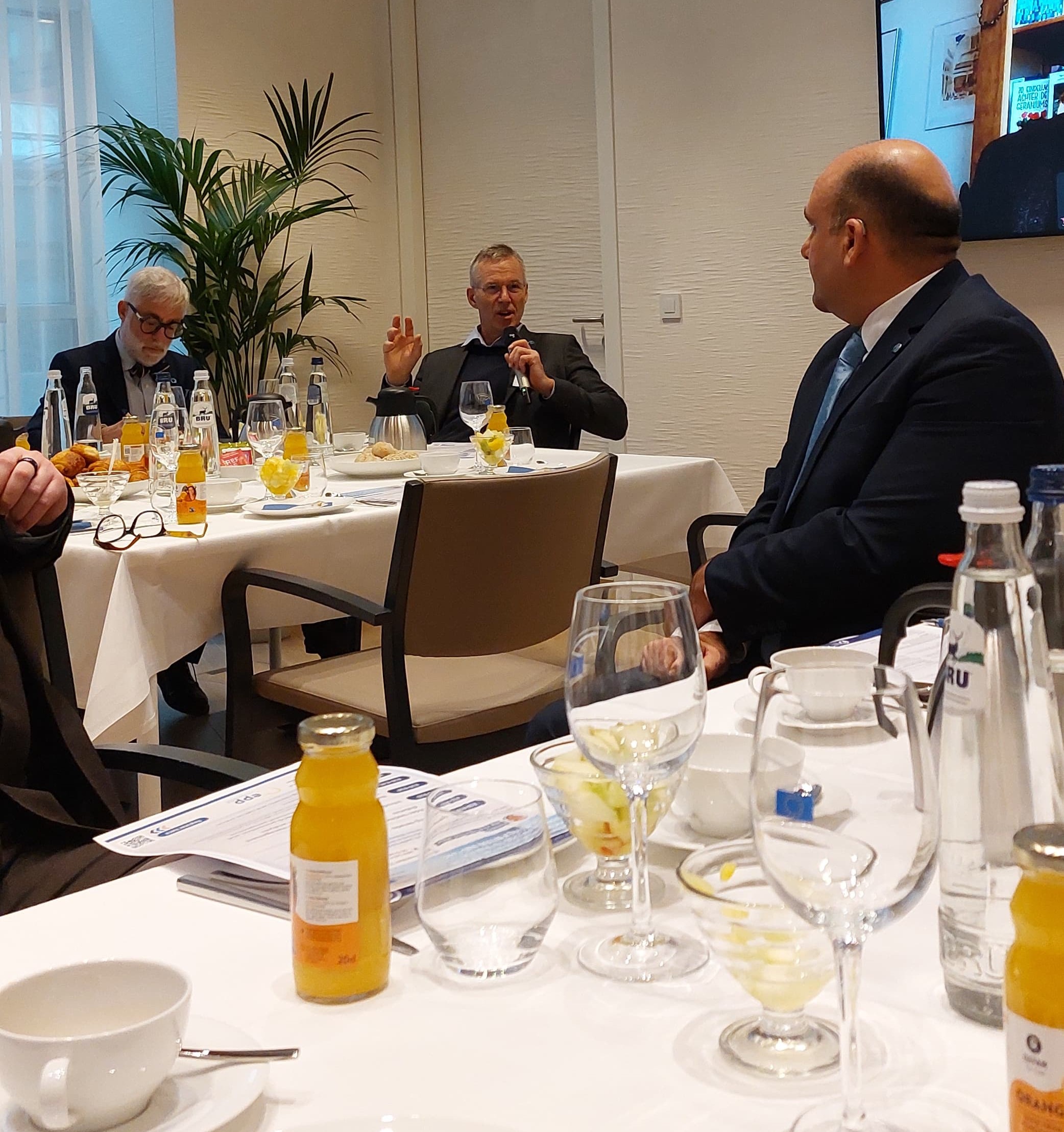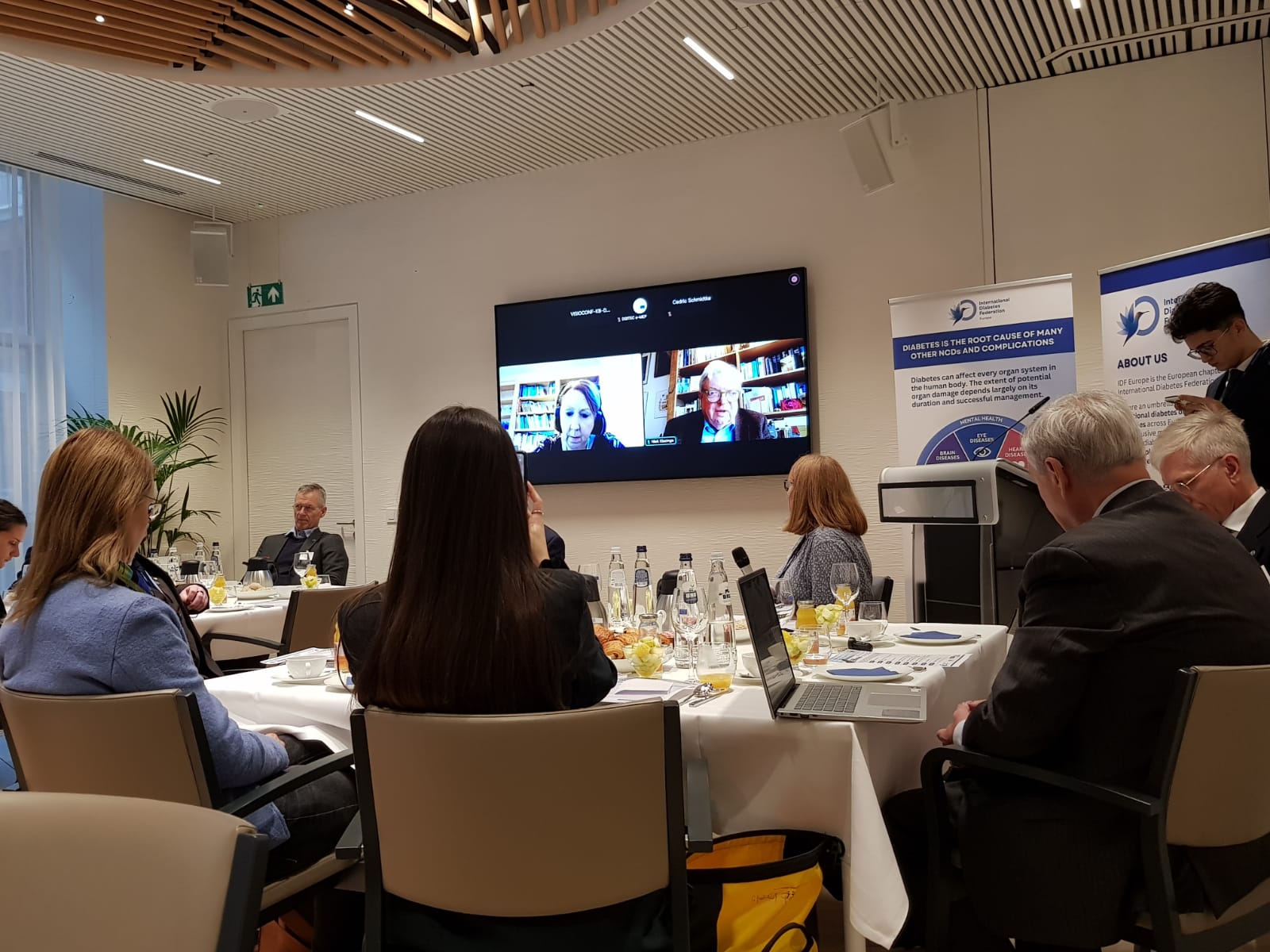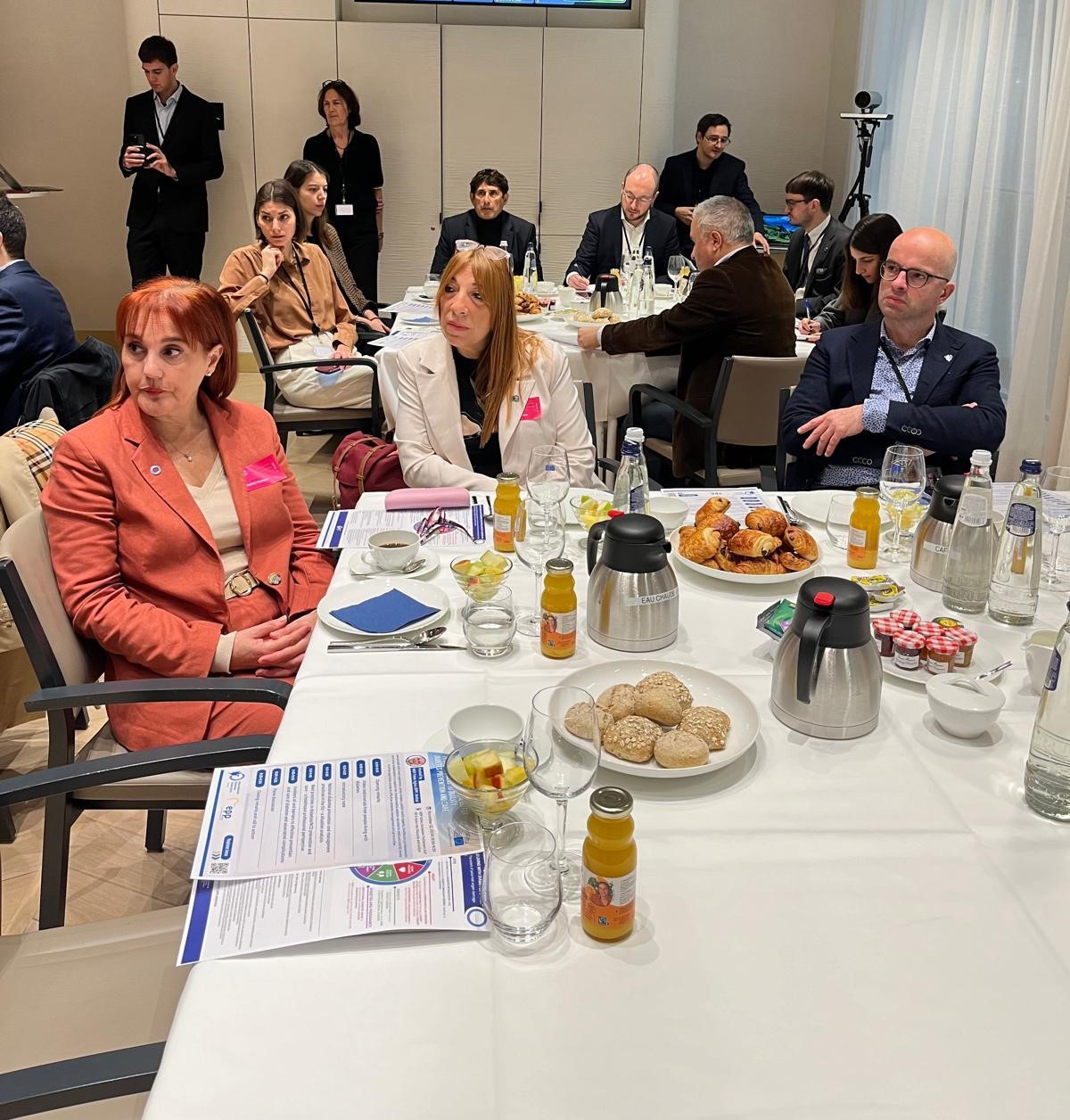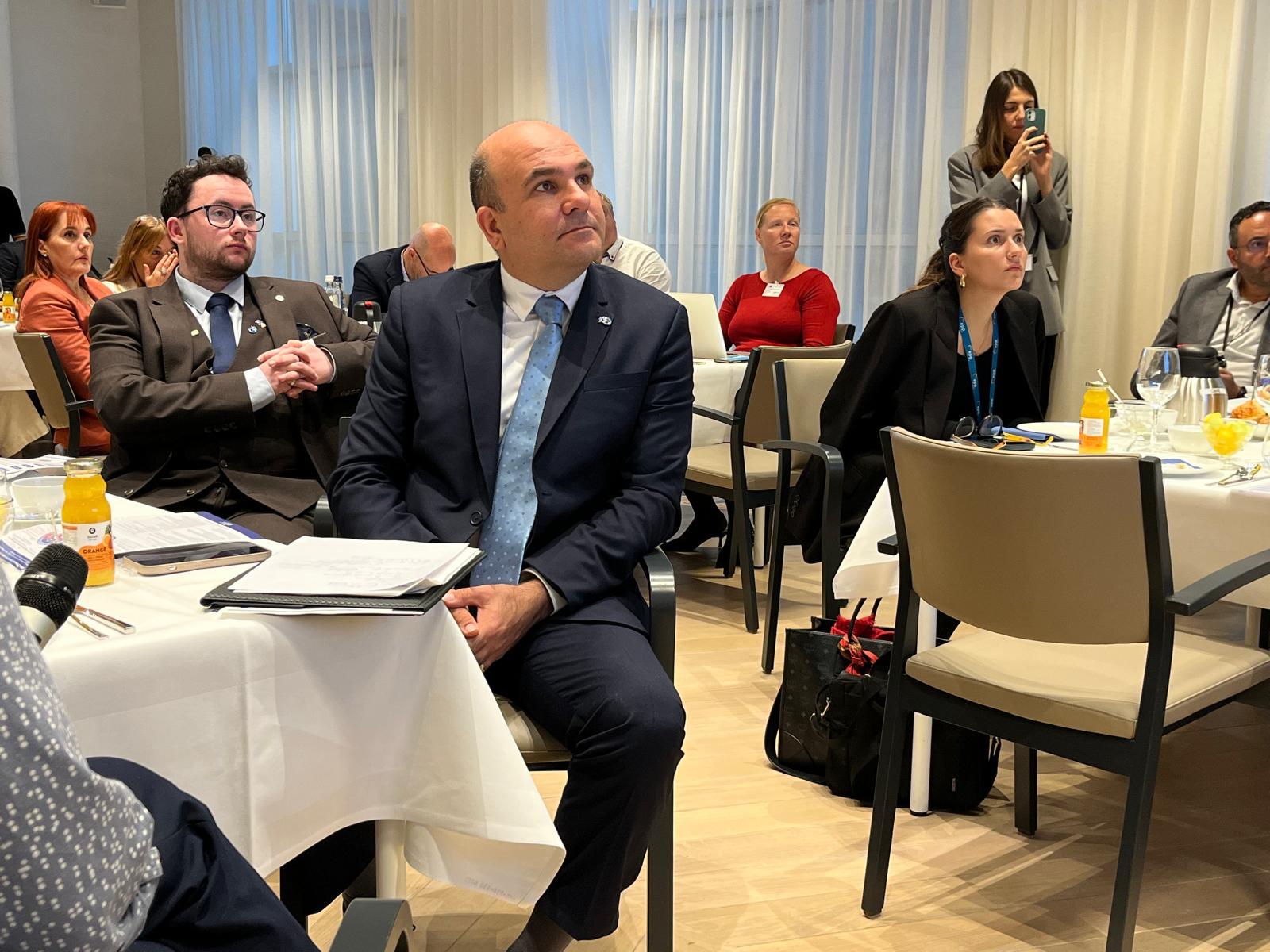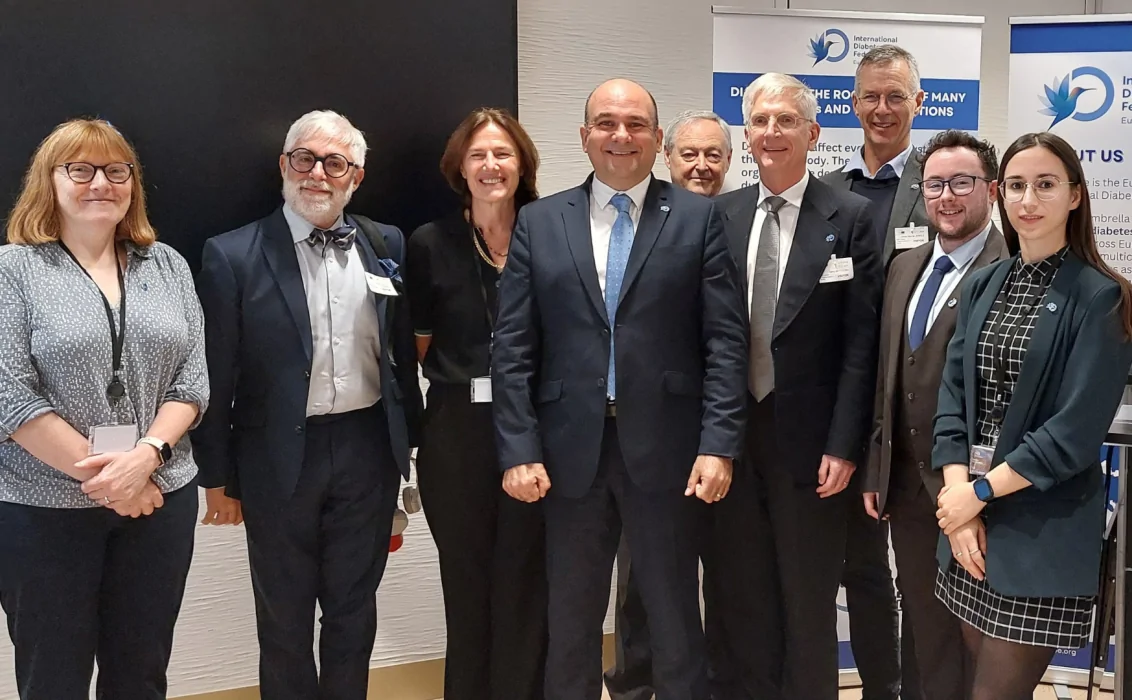On November 12, IDF Europe organised a breakfast debate hosted by MEP Peter Agius at the European Parliment, titled “Re-thinking health in the EU for better diabetes prevention and care.” Moderated by IDF Europe Director, Strategy & Policy, Sabine Dupont, the event opened with a video featuring testimonials from people with diabetes (PwD) on care barriers and successes across Europe.
IDF Europe Strategic Communications & Content Coordinator, Martina Boccardo, presented a situation analysis of diabetes prevention and management practices across the EU. She highlighted some of the main gaps and inequalities in access to diabetes prevention and care, such as diabetes education, e-health services and screening for complications, that need to be addressed to build more resilient and sustainable health systems.
Prof. Xavier Cos Claramunt, Primary Care Diabetes Europe (PCDE) Chairman, and Prof. Johan Jendle, from the Institute of Medical Sciences at Örebro University, discussed the importance of identifying best practices across Europe in the prevention and management of diabetes within primary care settings.
Dr. Susan Connolly, Health Service Executive, provided a case study example of how Ireland has implemented an integrated, community-based care model for preventing and managing non-communicable diseases (NCDs).
Dr. Niek Klazinga, Health Services Researcher, discussed the need for improved data infrastructure and interoperability to inform and guide policy decisions influencing health.
A panel discussion featured T1D advocate, Cameron Keighron and T2D advocate, Sergio Paoletti, alongside IDF Europe Chair-Elect, Prof. Tadej Battelino, MEP Agius, Dr. Connolly and Dr. Klazinga, reflecting on the need to re-think health systems for improved diabetes prevention and care.
Cameron Keighron highlighted the power of including the voices and stories of PwD within the re-design of healthcare systems and policy-making processes. Without their involvement, the system will not be equipped to meet their needs.
Sergio Paoletti emphasised the need for cross-sector collaboration to address diabetes: bringing together food policy, agriculture, research, healthcare and the voices of PwD. Complex problems require complex solutions — only united efforts can make a lasting impact.
Prof. Tadej Battelino emphasised the importance of maximising today’s innovations in screening, prevention strategies, medicines and technologies to improve health outcomes and quality of life for PwD and those at risk.
MEP Agius Peter closed the event with a pledge to build on the 2022 EU Diabetes Resolution and strengthen efforts in the new EU Parliament mandate to improve the lives of PwD. He stressed that EU policymakers should fully leverage their roles to drive meaningful change.
We wish to thank MEP Agius for hosting the event and for his support to the diabetes community, as well as everyone who joined us in-person and online.
EU health systems struggling to address diabetes crisis, reveals new analysis
Euractiv highlighted the key takeaways from the event in an article that addressed the pressing challenges faced by European healthcare systems in tackling diabetes such as the technology divide, obstacles to accessing diabetes education and psychological support and the need for strong national diabetes plans and registries.
The article underscores MEP Agius’ statement that “health systems must recognise the fundamental importance of diabetes prevention at their core”.
We wish to thank Air Liquide, Lilly Diabetes and Novo Nordisk for their support to this event.
